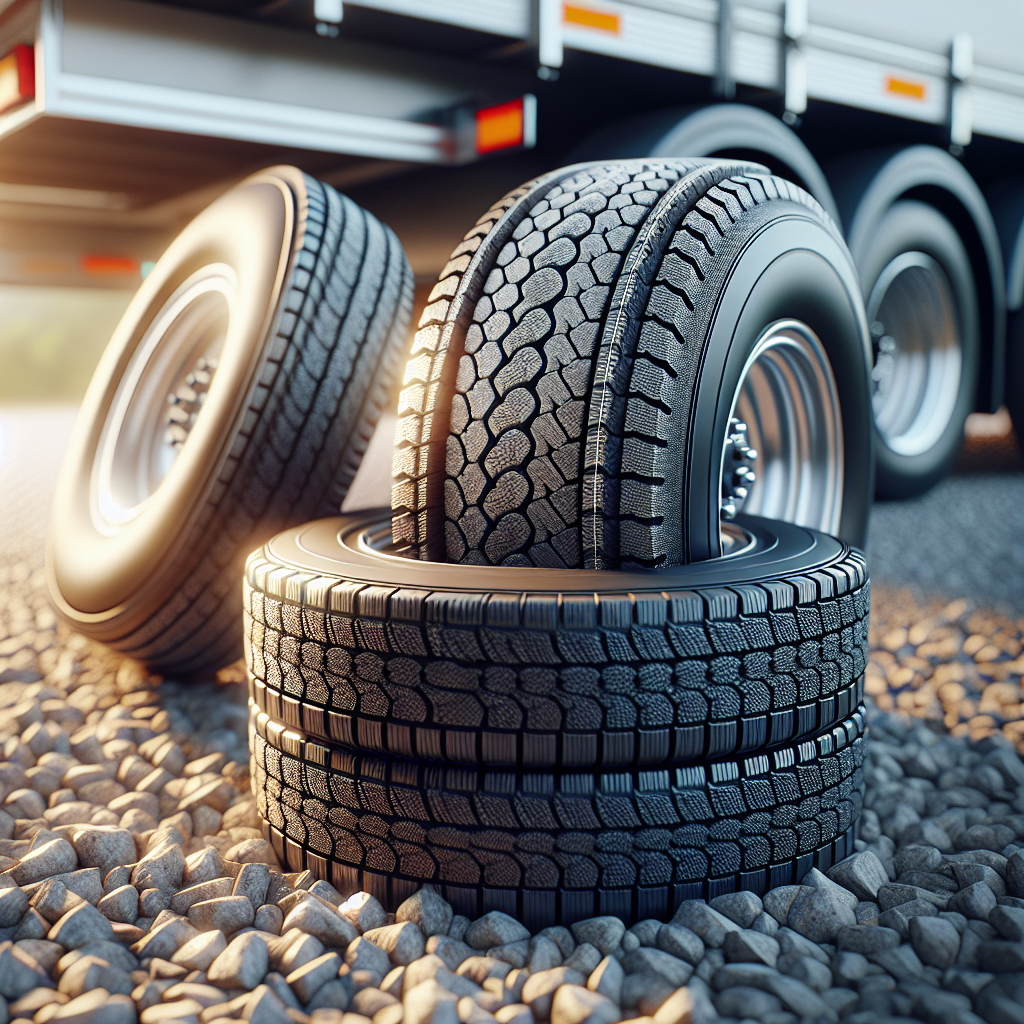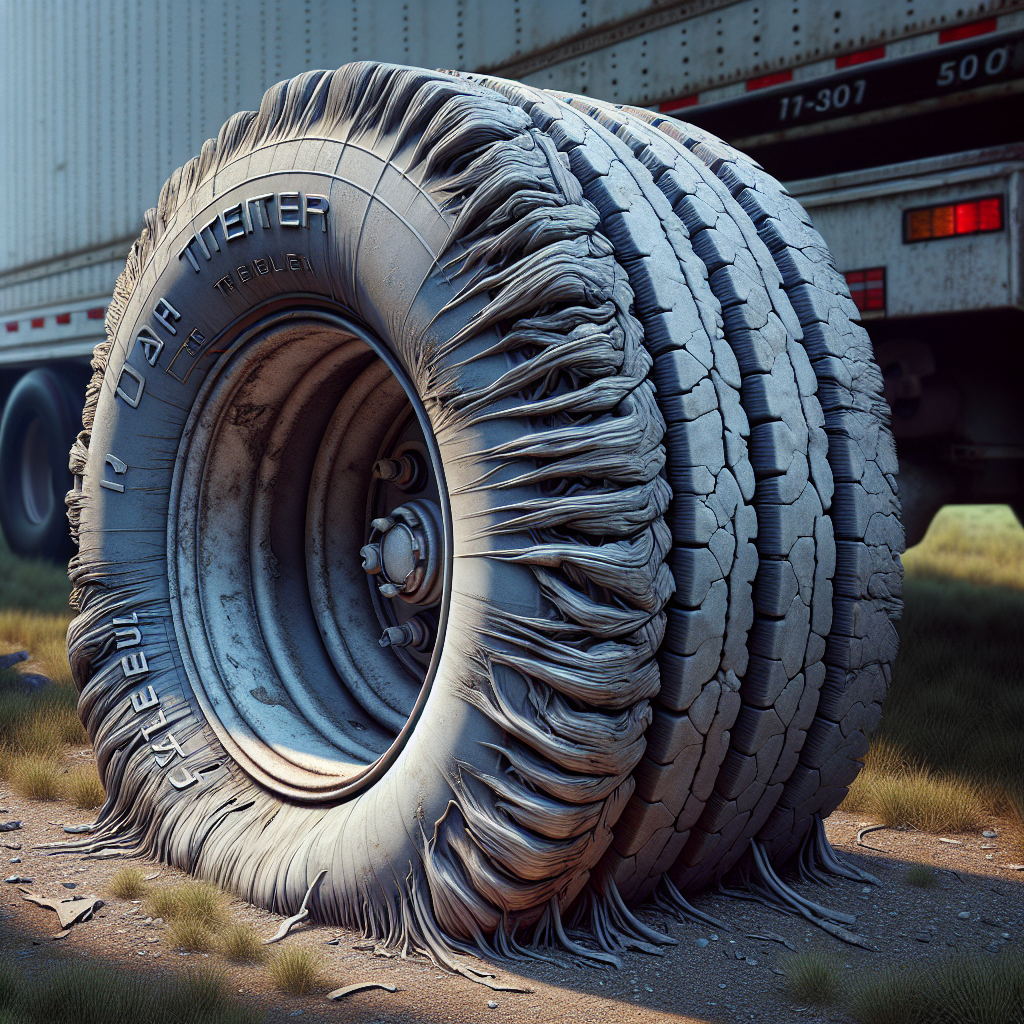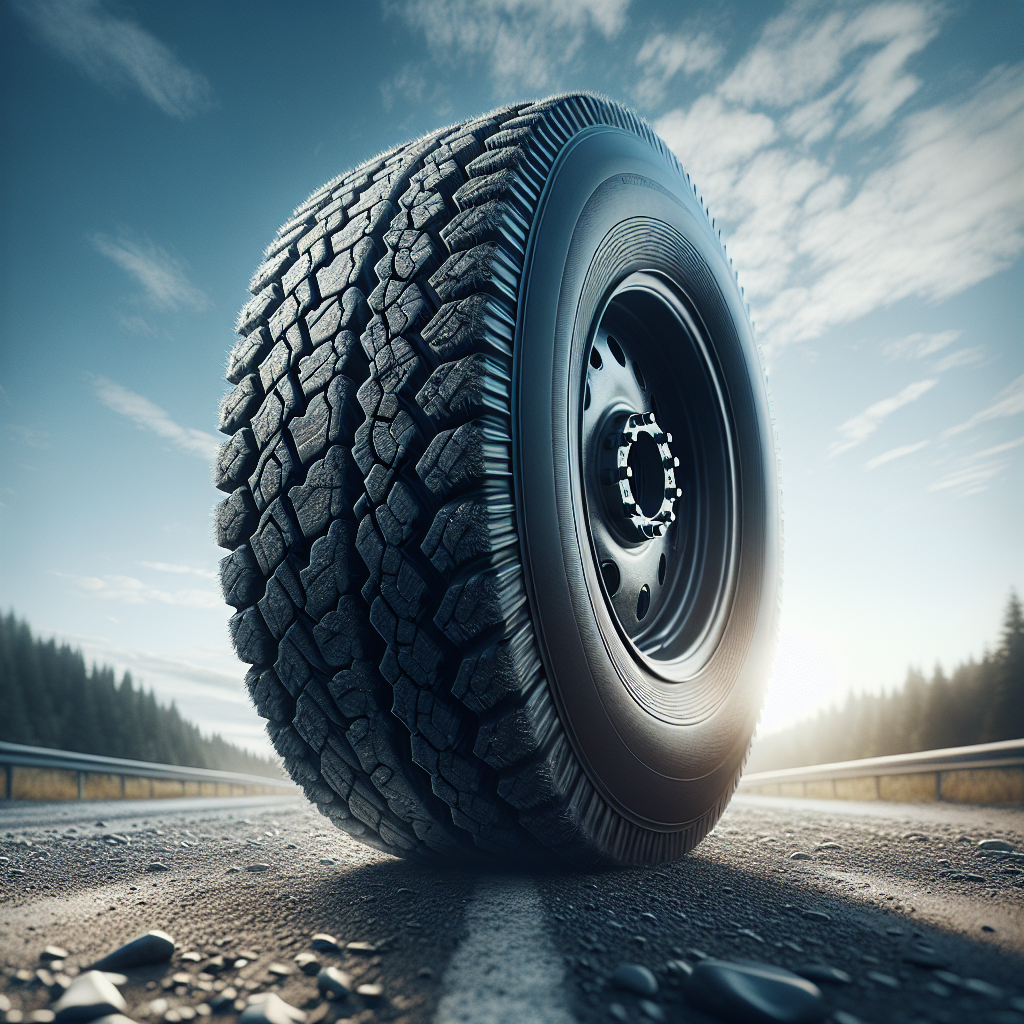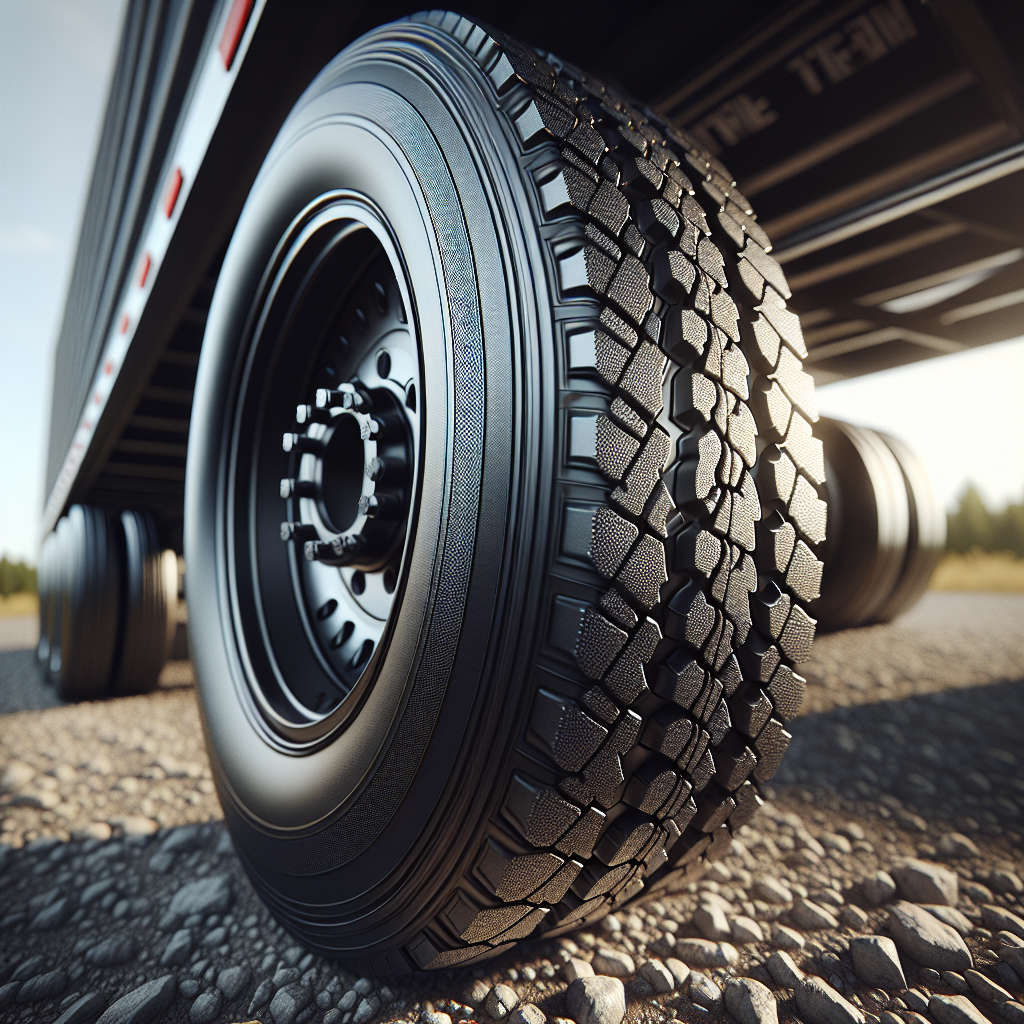When it comes to maintaining your trailer, understanding the wear patterns on your tires is crucial. These patterns can provide valuable insights into the underlying issues affecting your trailer's performance. One of the most common signs of tire wear is the outer edge wear, which can be indicative of several problems.
Primarily, improper alignment is a significant factor that contributes to this type of wear. If the wheels are not aligned correctly, the tires will not make uniform contact with the road, leading to uneven wear. Additionally, weight distribution plays a critical role; if your trailer is overloaded or unevenly loaded, it can cause excessive pressure on one side of the tires, leading to accelerated wear on the outer edges.
To further complicate matters, tire inflation is another essential aspect to consider. Under-inflated or over-inflated tires can lead to uneven wear patterns, including the outer edges wearing out faster. Regular maintenance checks, including ensuring proper alignment, weight distribution, and tire pressure, can help mitigate these issues.
By keeping an eye on these factors, you can enhance the lifespan of your trailer tires and ensure a safer towing experience. Tow with peace of mind, knowing that trailerwatchdog is standing guard.
Common Causes of Outside Tire Wear
Understanding the common causes of outside tire wear is essential for trailer owners aiming to prolong the life of their tires and enhance safety while towing. Several factors contribute to this issue, and recognizing them can help prevent catastrophic failures on the road.
One of the primary culprits is misalignment. When the wheels of a trailer are not aligned properly, it causes uneven contact with the road surface. This misalignment can stem from hitting potholes, curbs, or from normal wear and tear over time.
Improper inflation is another significant factor. Tires that are under-inflated tend to wear more on the edges due to the increased surface area in contact with the road. Conversely, over-inflated tires can also lead to uneven wear, as they become rigid and lose contact with the road surface.
Inadequate weight distribution can also exacerbate outside tire wear. If a trailer is loaded unevenly, it places excessive strain on one side, leading to accelerated wear of the tires on that side. Regular checks of the load balance can help mitigate this issue.
Lastly, poor maintenance practices can contribute to outside tire wear. Neglecting regular tire rotations, failing to monitor tread depth, and skipping alignment checks can all lead to premature tire deterioration.
Impact of Improper Wheel Alignment

The impact of improper wheel alignment on trailer tires cannot be overstated. It plays a critical role in ensuring that your trailer operates smoothly and efficiently. When the wheels are misaligned, it results in uneven tire wear, particularly on the outer edges, which can significantly shorten the lifespan of tires.
One of the most noticeable effects of misalignment is the driving experience. A trailer with misaligned wheels may pull to one side, making it difficult to control. This not only poses a safety risk but also increases the strain on the towing vehicle, potentially leading to further mechanical issues.
Furthermore, improper alignment can cause excessive heat buildup in the tires. As the tires rub against the road unevenly, friction increases, generating heat. This heat can damage the tire’s internal structure, leading to blowouts or other failures while on the road.
Another consequence is the financial impact. Frequent tire replacements due to premature wear can become costly over time. Additionally, misalignment can lead to increased fuel consumption, as the towing vehicle must work harder to compensate for the trailer pulling to one side.
Regular checks and adjustments of wheel alignment are essential for maintaining optimal performance and prolonging tire life. By addressing alignment issues promptly, trailer owners can avoid the negative consequences associated with improper wheel alignment.
Importance of Proper Weight Distribution

The importance of proper weight distribution in trailers cannot be overlooked, as it directly affects tire wear and overall stability. When weight is distributed unevenly, it places excessive pressure on certain tires, leading to accelerated wear and potential failures.
One major consequence of improper weight distribution is increased tire stress. Tires that bear too much load can experience higher temperatures, which may result in blowouts or tread separation. This risk is particularly pronounced during long hauls, where heat buildup can become a significant factor.
Moreover, improper weight distribution can result in instability while towing. A trailer that is too heavy in the front or back can sway or fishtail, making it difficult to control. This instability not only compromises safety but can also lead to excessive tire wear as the tires struggle to maintain traction on the road.
To ensure optimal weight distribution, it is crucial to follow manufacturer guidelines regarding load limits and to regularly check the trailer's balance. Distributing weight evenly across the axles helps maintain tire integrity and enhances the overall towing experience.
By prioritizing proper weight distribution, trailer owners can extend tire life, improve safety, and enhance fuel efficiency. Investing time in this crucial aspect of trailer maintenance pays off in the long run.
Tips for Maintaining Trailer Tires

Maintaining trailer tires is essential for ensuring safety, enhancing performance, and prolonging the life of the tires. Here are some effective tips for maintaining trailer tires that every trailer owner should consider:
- Regular Inspections: Conduct routine checks of tire pressure, tread depth, and overall condition. Look for signs of wear, cracks, or bulges in the sidewalls.
- Proper Inflation: Ensure that tires are inflated to the manufacturer's recommended pressure levels. Under-inflated tires can lead to overheating and excessive wear, while over-inflated tires may cause blowouts.
- Rotate Tires: Just like with vehicle tires, rotating trailer tires can promote even wear. This practice should be done every few months or after long trips.
- Check Alignment: Misalignment can lead to uneven tire wear. Regularly check the alignment of your trailer to ensure that it is not causing undue stress on the tires.
- Keep Tires Clean: Remove dirt, debris, and any corrosive substances from the tires. This helps to prevent deterioration of the rubber and maintains tire integrity.
- Store Properly: When not in use, store your trailer in a cool, dry place, preferably on a flat surface. If possible, use tire covers to protect them from UV rays and extreme weather conditions.
By following these maintenance tips, trailer owners can help ensure their tires remain in top condition, reducing the risk of tire failure and enhancing the overall safety and efficiency of their towing experience.
When to Seek Professional Help

While regular maintenance is crucial for the longevity of your trailer tires, there are certain situations where seeking professional help becomes essential. Recognizing when to consult an expert can prevent minor issues from escalating into major problems. Here are some indications that it may be time to reach out for professional assistance:
- Severe Wear Patterns: If you notice significant uneven wear on your tires, such as excessive wear on the outer edges, it could indicate alignment issues or suspension problems. A professional can diagnose and address these issues before they worsen.
- Frequent Blowouts: Experiencing multiple tire blowouts in a short period is a clear sign that something is wrong. An expert can help identify underlying problems, such as incorrect tire pressure or poor weight distribution.
- Suspension or Steering Problems: If you feel your trailer pulling to one side or if the steering feels off, these are signs of potential suspension or alignment issues. A professional can accurately assess and rectify these concerns.
- Unusual Noises or Vibration: Any strange sounds, vibrations, or handling issues while towing should not be ignored. These can be indicators of tire or axle problems that require expert evaluation.
- Age of Tires: If your tires are over six years old, regardless of tread condition, it's advisable to have them inspected by a professional. Aging tires can be more prone to failure, even if they appear to be in good shape.
By being proactive and knowing when to seek help, you can maintain the safety and performance of your trailer. Tow with peace of mind, knowing that trailerwatchdog is standing guard.

